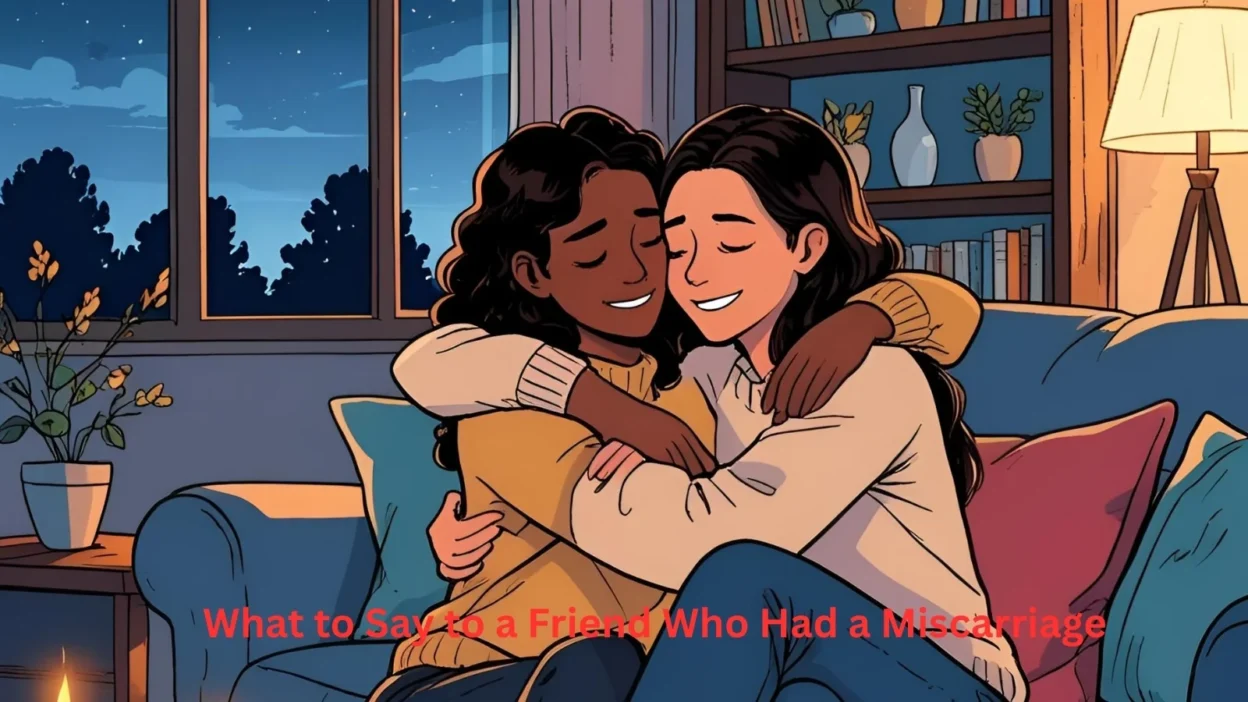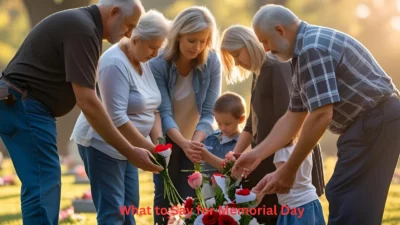Losing a pregnancy is one of the most heart breaking experiences anyone can go through. If you have a friend who had a miscarriage, you might feel unsure of what to say. You want to comfort them, but you worry about saying the wrong thing. You’re not alone in feeling this way. Many people struggle with how to support someone after such a deep loss. That’s why knowing what to say to a friend who had a miscarriage is so important.
This article will help you speak from the heart with empathy, kindness, and confidence. Whether it’s your best friend, coworker, or sister, you’ll find real words and actions that bring comfort. We’ll also explore what not to say, so you avoid unintentionally hurting them. Miscarriage is often a silent grief—but with the right words, you can help your friend feel seen, heard, and deeply loved.
Key Takeaways:
What to Say to a Friend Who Had a Miscarriage
- “I’m so sorry you’re going through this. I’m here for you.”
- Avoid saying things like “At least it happened early” or “You can try again.”
- Acknowledge their grief—don’t minimize it.
- Use their baby’s name if they’ve shared it.
- Offer specific help like meals or errands—not just “Let me know.”
- It’s okay to say, “I don’t know what to say, but I care.”
- Be present—listen more than you speak.
- Check in regularly, even weeks or months later.
- Avoid giving advice unless they ask.
- Your words and presence can truly comfort their heart.
Sorry Generator
What to Say and What Not to Say to a Friend Who Had a Miscarriage
Words That Truly Help
When your friend has lost a pregnancy, the best thing you can do is show up with love. Start by saying, “I’m so sorry you’re hurting. I’m here for you.” Simple words mean a lot when they come from the heart. You don’t need a perfect script—just speak with honesty and care.
Here are some more kind things you can say:
- “I can’t imagine the pain, but I want to be here for you.”
- “I’m holding space for you. You and your baby matter.”
- “Would you like to talk about what happened? I’ll just listen.”
- “If you named your baby, I’d love to know their name.”
Each sentence honors their grief. Each one reminds them that their feelings are real and valid.
What Not to Say (Even If You Mean Well)
Some phrases can hurt, even when they come from a loving place. Here’s what to avoid:
- “At least it was early.”
- “You can try again soon.”
- “Everything happens for a reason.”
- “It’s part of God’s plan.”
- “Maybe it wasn’t meant to be.”
These words can make your friend feel dismissed. Instead of comforting, they can deepen the pain. Stick to compassion, not correction.
How to Be There for Your Friend After a Miscarriage

Small Actions, Big Impact
You don’t need to solve anything—you just need to be there. Bring over a meal. Send a handwritten note. Text, “I’m thinking of you today.” These little things help more than you realize.
Here are some thoughtful gestures:
- Drop off flowers or a care package
- Help with chores or errands
- Offer to babysit if they have other kids
- Create a small memorial together
Every act says: You are not alone.
Say Their Baby’s Name (If Shared)
If your friend gave their baby a name, use it. Saying, “I’m thinking of baby Grace today,” can bring peace to their heart. It shows you remember. It shows their child mattered.
The Power of Listening Without Trying to Fix
Let Them Speak Without Judgment
Sometimes, the most powerful words are none at all. Sit with your friend. Let them cry, scream, or say nothing at all. Just listen. Don’t rush to fill the silence.
You can say:
- “I’m here. Take all the time you need.”
- “I’m not going anywhere.”
- “Whatever you’re feeling is okay.”
This kind of support builds trust. It also lets your friend grieve in their own way.
Avoid Giving Advice (Unless Asked)
Even well-meaning advice can sting. Don’t offer medical opinions, fertility tips, or comparisons. If they ask, respond gently. If they don’t, just hold space.
When Words Feel Hard: Simple Scripts to Text or Say
Here are a few message ideas for when you’re unsure:
- “I just wanted you to know I love you and I’m thinking of you.”
- “If you want to talk or sit in silence, I’m here.”
- “Do you want me to come over with coffee or dinner?”
- “You don’t have to reply—I just wanted you to feel supported.”
Short, simple, and thoughtful always wins.
What Grief Really Looks Like After a Miscarriage
Emotional Ups and Downs
Grief isn’t neat. One day, your friend may want to talk. The next, they might need space. That’s normal. Give grace, not pressure.
They may feel:
- Angry
- Empty
- Lonely
- Anxious
- Guilty
Keep checking in. Keep showing up. Even a quick, “Thinking of you,” means so much.
Support That Lasts Beyond the First Week
Miscarriage pain doesn’t end after a few days. Keep supporting them long after others stop. Mark important dates, like the baby’s due date, and reach out then.
You can say:
- “I remember today’s your due date. I’m here.”
- “Thinking of your baby today.”
- “Sending extra love this week.”
Practical Tools and Ideas to Show You Care
U.S.-Based Support Resources
Here are a few helpful websites and groups:
| Resource | What It Offers |
|---|---|
| Share Pregnancy & Infant Loss Support | Grief support, online groups |
| March of Dimes | Education and community support |
| The Miscarriage Association | Global resources and stories |
| Return to Zero: HOPE | Healing programs and retreats |
Daily Habits to Stay Connected
- Set a reminder to check in weekly
- Send them encouraging quotes
- Keep space open for their story
Frequently Asked Questions (FAQs)
What to say to a friend who had a miscarriage?
Say, “I’m so sorry you’re going through this. I’m here for you.” Keep it simple, kind, and supportive.
How do I comfort someone who lost a pregnancy?
Listen without judgment, acknowledge their grief, and offer small, practical help.
What should I avoid saying after a miscarriage?
Avoid phrases like “It wasn’t meant to be” or “You’ll get pregnant again soon.” These can hurt more than help.
Is it okay to talk about the baby?
Yes—if your friend opens the door. Use the baby’s name if shared. It honors their memory.
How long does miscarriage grief last?
There’s no timeline. Grief comes in waves. Keep checking in—even months later.
What are some good text messages to send?
Try, “Thinking of you today,” or “I’m here if you want to talk.” Keep it gentle and warm.
Can I share my own miscarriage story?
Only if they ask or it feels truly helpful. Always center their experience first.
Should I send a card or flowers?
Yes. A simple gesture of care can bring deep comfort. Personal notes mean a lot.
Conclusion
Knowing what to say to a friend who had a miscarriage isn’t always easy—but it’s so important. Your words have power. They can comfort, heal, and bring light to a dark moment. Choose compassion. Choose presence. Speak from your heart. And remember—just being there matters more than saying something perfect.
LSI Keywords
pregnancy loss support, miscarriage grief, comfort after miscarriage, baby loss, supporting grieving friends, how to help after miscarriage, saying the right thing, emotional healing, listening with empathy, friend had a miscarriage, what to do after a miscarriage, miscarriage condolences, showing support, miscarriage recovery, healing after baby loss




